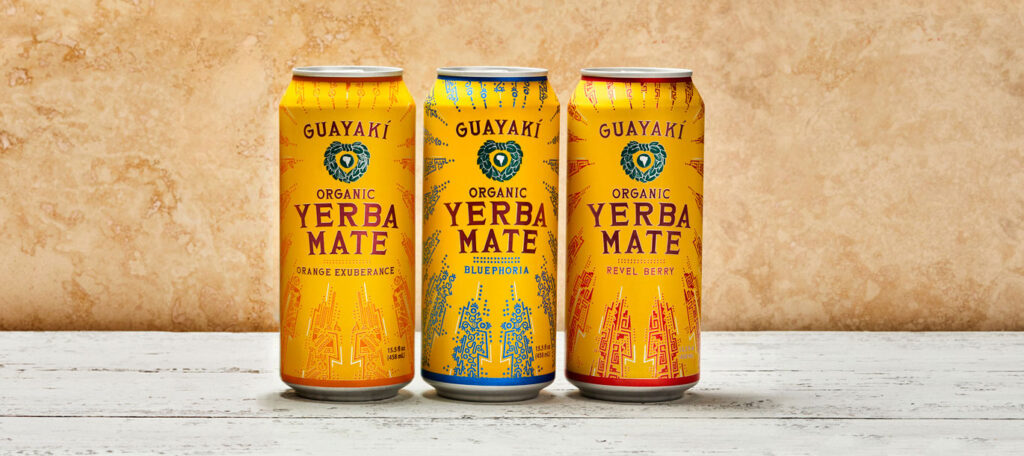At some point in the last few years, you may have found yourself torn between getting yourself yet another cup of coffee or walking towards the fridge for a Guayakí Yerba Mate. The drink contains a little less caffeine than your average joe but tastes like a flavored tea, although it actually isn’t a tea at all. Yerba Mate has become wildly popular over the last couple of decades, and its rise in prominence has brought with it a much-needed conversation about sustainability.
The indignities of the coffee industry are well-documented. Big corporations seize indigenous land and either coerce or enslave the populations of those lands, forcing them to work as coffee bean farmers. Many of them are exploited and under-compensated, their land destroyed and harvested for the purposes of making sure we have enough energy to get through the day. Alex Pryor, who was inspired by his Argentine roots to grow and sell yerba mate in a sustainable way, knew something had to change.
Born and raised in Argentina, Pryor had the idea to start selling yerba mate in 1996, when he moved to California for college, with just his clothing and a stockpile of yerba mate from home. Pryor noticed that the often-tired students were reliant on coffee to get them through the day, and he saw an opportunity to introduce a pretty incredible alternative from his home country.

Courtesy of Guayakí
The average cup of yerba mate has roughly 85 mg of caffeine in it. Although that’s slightly less than a cup of coffee, yerba mate also comes with a host of vitamins and antioxidants not present in most coffees. In addition to vitamins A, C, and E, yerba mate contains magnesium, zinc, potassium, and iron. It also contains the compound theobromine, which promotes heart health, and can actually help open your heart vessels to provide smooth circulation.
To prevent deforestation and, instead, work towards rainforest regeneration, Guayakí first uses existing, naturally-grown yerba mate trees. They prioritize working with local indigenous people to properly harvest from the trees, and pay their farmers a living wage. They then restore any resources they use in the process by planting and growing additional trees on the land they’ve already cleared.
One of the indigenous communities that collaborates with Guayakí, the Aché Kuetuvy, reacquired their land in Paraguay, in 2000, after being forced out in the 1970s. The Aché Kuetuvy had nearly gone extinct following multiple genocide campaigns that drastically reduced their population. But today, they consider themselves a thriving community that works closely with Guayakí to prioritize sustainable efforts that promote regeneration and responsible utilization of resources from the land.
This Market Driven Regeneration approach has put Guayakí on the frontlines of sustainable farming. For Pryor, maintaining the lands the company has invested in, the land that gave him the ability to harvest and sell yerba mate in the first place, is a top priority. Today, he works with the Fundación Agroecológica Iguazú to design regenerative models of production for businesses working within the bounds of indigenous and undeveloped land.
“Since my early memories,” Pryor said in a Come to Life profile. “I could smell yerba mate being poured into the gourd by my mother when I was raised in Argentina. Yerba mate was always a symbol of hospitality and friendship.” Guayakí has put their money where their mouth is, sacrificing profits for the betterment of the communities with whom they work, and for the greater ecology of the rainforests where they harvest their plants.
Josef Rodriguez is a writer, filmmaker, and film critic living in New York City.









